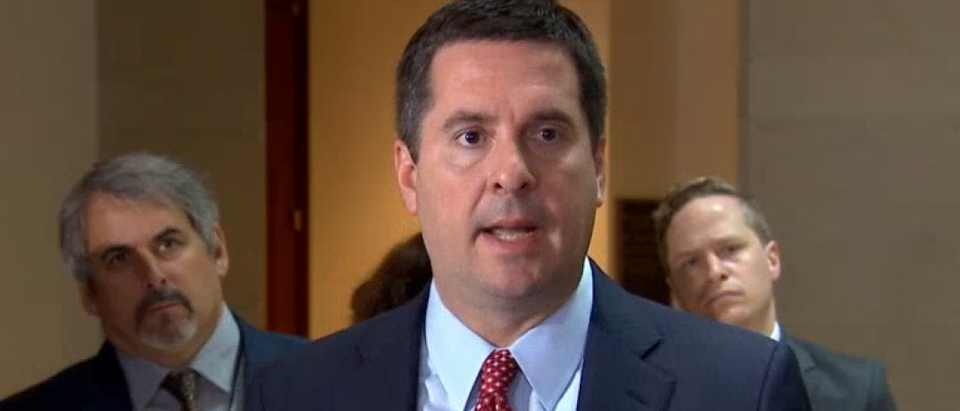Chair of the House Intelligence Committee Devin Nunes observed in his opening remarks to Monday’s House Intelligence Committee meeting: “Let me be clear, I’ve been saying this for several weeks. We know there was not a physical wiretap of Trump Tower. However, it’s still possible that other surveillance activities were used against President’s Trump and his associates.” This came as no surprise to many professional intelligence officers.
On Wednesday, Nunes elaborated, saying, “I recently confirmed that on numerous occasions, the intelligence community collected information on U.S. individuals involved in the Trump transition. Details about U.S. persons involved in the incoming administration with little or no apparent foreign intelligence value were widely disseminated in intelligence community reports.” Nunes added that the surveillance of Americans was both legal and not deliberate, instead consisting of “incidental” coverage connected to other targets, though he noted that the links were not to Russians and also stated that the reports he had seen dated to December and January.
The media has been fixated on the word “wiretap,” used inappropriately by President Donald Trump, implying as it does microphones and other listening devices put in place by spies. The reality is that many innocent Americans are spied upon by their government quite legally as the National Security Agency has a mandate to collect vast amounts of telecommunications related information which is then stored for up to five years, recoverable and usable if needed. When American citizens are inadvertently recorded, they are generally “masked” to conceal their identities. “Unmasked” raw intelligence is reportedly only accessible by a small handful of senior officials.
Incidental collection is, of course a euphemism, to justify something that the government should strictly speaking not be doing, i.e. electronically surveilling American citizens. It is coverage that takes place when actual bona fide targets connect with someone who is not of interest, with the automatic collection by computer nevertheless noting the link and adding it to its work menu. The tools for conducting modern espionage are technically very advanced, allowing hackers and also government security agencies alike to operate remotely to obtain emails and phone conversations without having to enter buildings or tamper with phones and computers.
The confusion on spying tradecraft helped to hide the real story that came out of Monday’s hearings, which, also somewhat missed by Nunes, explains why national security professionals knew that Trump Tower had indeed been targeted by federal law enforcement. The confirmation by FBI Chief James Comey that the Trump campaign staff had been subjected to investigation over its possible links to Russia since late July, well before the reporting seen and reviewed by Nunes, suggests that an earlier phase of the surveillance might have been more aggressive.
As the focused investigation into Russian ties apparently did not include anything as intrusive as normal practice Bureau interviews of suspects, only phones and emails from the Trump Campaign Committee, located in the Tower, would remain as possible targets. Transmissions would have been recorded, collected and reviewed as standard operating procedure for possible indications that crimes were being committed or national security was being compromised. And given the fact that the FBI would not initiate such a highly politically charged investigation spontaneously without political cover, it should be considered highly likely that, in spite of denials, the Justice Department and White House would have been in the loop before the Bureau initiated its surveillance.
Comey’s other revelation was that in all that time there has been no evidence collected that suggests that anyone associated with Donald Trump was in any way compromised by possible contact with Russians, but he nevertheless insisted that the investigation should and would continue. Nor did he either confirm or deny that the Bureau would also be looking into the leaks of highly classified “unmasked” information connected to the Flynn telephone conversations with the Russian Ambassador, which surely sets the stage for a long, drawn-out process in which Republicans will be seeking to discover the leakers while the Democrats will try to demonstrate that some Trump associates have sold out to the Russians.
If the leakers have been careful in covering their tracks, which is quite likely, it is possible that neither narrative will prevail and the American public will be the real loser as Congress again moves towards gridlock. As several Congressmen noted at Monday’s hearing, a grey cloud has descended, which will hobble both Congress and the new Administration. No one will benefit.


